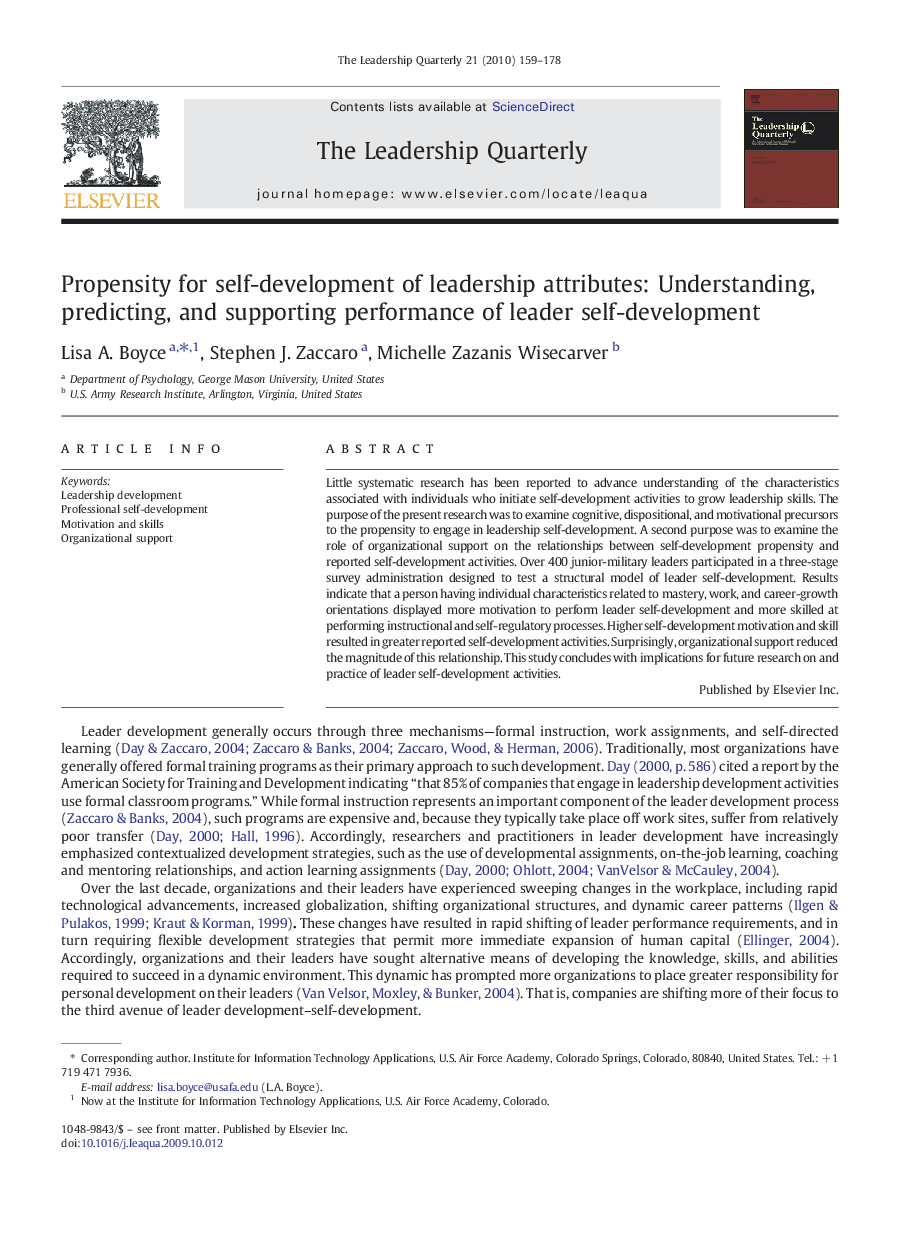| Article ID | Journal | Published Year | Pages | File Type |
|---|---|---|---|---|
| 888032 | The Leadership Quarterly | 2010 | 20 Pages |
Little systematic research has been reported to advance understanding of the characteristics associated with individuals who initiate self-development activities to grow leadership skills. The purpose of the present research was to examine cognitive, dispositional, and motivational precursors to the propensity to engage in leadership self-development. A second purpose was to examine the role of organizational support on the relationships between self-development propensity and reported self-development activities. Over 400 junior-military leaders participated in a three-stage survey administration designed to test a structural model of leader self-development. Results indicate that a person having individual characteristics related to mastery, work, and career-growth orientations displayed more motivation to perform leader self-development and more skilled at performing instructional and self-regulatory processes. Higher self-development motivation and skill resulted in greater reported self-development activities. Surprisingly, organizational support reduced the magnitude of this relationship. This study concludes with implications for future research on and practice of leader self-development activities.
